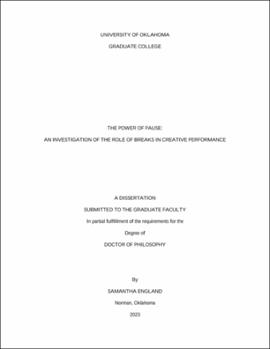The Power of Pause: An Investigation of the Role of Breaks in Creative Performance
Abstract
Although studies indicate that intrinsic interest is likely a stronger motivator for creativity than external factors, companies that prioritize creativity have increasingly implemented external motivators into their work environments in the form of respite activities. Despite this growing trend, little research has investigated the usefulness of breaks for promoting creativity. The purpose of the present effort was to address this gap in the literature by exploring the impact of external motivational influences on creative problem-solving performance – specifically, the impact of imposed work breaks, performance pressure, and creative self-efficacy. Participants were asked to take on the role of a product development manager tasked with developing a new restaurant proposal for the firm. Results from the present effort yielded a pattern of findings that demonstrated no significance. However, the findings may still provide valuable insights. More specifically, this study emphasizes the need for more caution when considering the types of tasks used to study motivation in creativity. The findings of the present effort suggest that intrinsically motivating tasks may take priority over externally imposed motivational influences.
Collections
- OU - Dissertations [9426]
